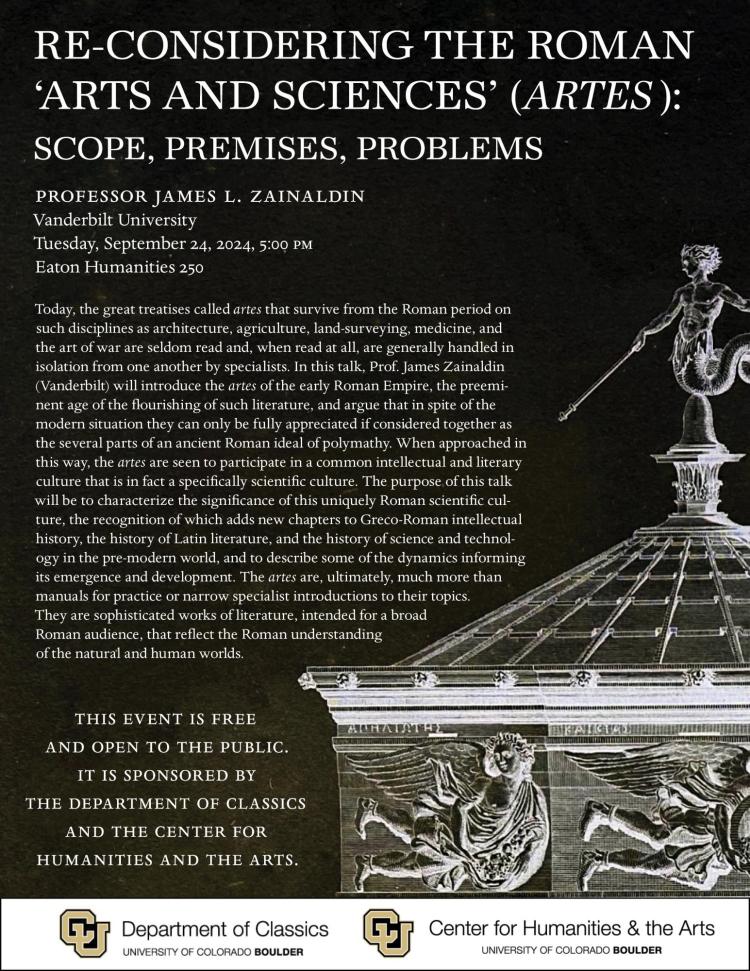Re-considering the Roman “Arts and Sciences” (artes): Scope, Premises, Problems
James L. Zainaldin
Vanderbilt University
Tuesday, September 24th, 5:00PM | Eaton Humanities 250
Today, the great treatises called artes that survive from the Roman period on such disciplines as architecture, agriculture, land-surveying, medicine, and the art of war are seldom read and, when read at all, are generally handled in isolation from one another by specialists. In this talk, Prof. James Zainaldin (Vanderbilt) will introduce the artes of the early Roman Empire, the preeminent age of the flourishing of such literature, and argue that in spite of the modern situation they can only be fully appreciated if considered together as the several parts of an ancient Roman ideal of polymathy. When approached in this way, the artes are seen to participate in a common intellectual and literary culture that is in fact a specifically scientific culture. The purpose of this talk will be to characterize the significance of this uniquely Roman scientific culture, the recognition of which adds news chapters to Greco-Roman intellectual history, the history of Latin literature, and the history of science and technology in the pre-modern world, and to describe some of the dynamics informing its emergence and development. The artes are, ultimately, much more than manuals for practice or narrow specialist introductions to their topics. They are sophisticated works of literature, intended for a broad Roman audience, that reflect the Roman understanding of the natural and human worlds.
This event is free and open to the public. It is sponsored by the Department of Classics and the CU Center for Humanities & the Arts


